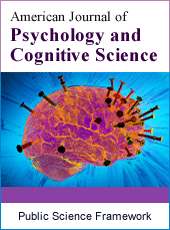American Journal of Psychology and Cognitive Science
Articles Information
American Journal of Psychology and Cognitive Science, Vol.1, No.5, Dec. 2015, Pub. Date: Jan. 16, 2016
The Perspective of Final Year Students at Faculty of Dentistry in Turkey on Dentistry Specialty Examination
Pages: 147-154 Views: 2911 Downloads: 670
[01]
Mustafa Erhan Sari, Department of Pediatric Dentistry, Faculty of Dentistry, Ondokuz Mayis University, Samsun, Turkey.
[02]
Leman Tomak, Department of Biostatistics, Faculty of Medicine, Ondokuz Mayıs University, Samsun, Turkey.
[03]
Ilker Keskiner, Department of Periodontology, Faculty of Dentistry, Ondokuz Mayis University, Samsun, Turkey.
Background: The Dentistry Specialty Examination aims at selection of the students who will have specialization training in faculties of dentistry based on objective criteria. The present study aimed at establishing and evaluating the opinions and choices of the fifth year students from the Ondokuz Mayis University (OMU) Faculty of Dentistry and the factors involved. Methods: Study was conducted with the fifth year students of the Faculty of Dentistry at OMU between 2013 and 2014. The sample size was established as 96 students, by accessing 90% of the fifth year students. During the study, questionnaire forms with questions for the students' sociodemographic features and their opinions about the examination for specialty in dentistry were used to collect data. Additionally, the Beck Hopelessness Scale (BHS) was used to determine the future expectations of the students. Results: The majority of the students want to take the Dentistry Specialty Examination, whereas 69.9% have expressed that this exam was necessary. It was a difficult exam and the Basic Medical Sciences questions were particularly difficult. It was found that the Beck Hopelessness Scale score was lower in the students who wanted to take the specialty exam. The query based on the professional life expectancy revealed that the students with hope had the lowest hopelessness score, whereas the students without hope had the highest score. Conclusion: The students who are partially or completely hopeful about the profession have more positive thoughts about their future life compared to the hopeless students.
Dentistry, Specialty Examination
[01]
Türk diş hekimleri birliği merkez yönetim kurulu 13. Dönem çalışma raporu 2010-2012, 86-95.
[02]
Kurt H (2013). Diş hekimliğinde uzmanlık sınavı. Sağlık düşüncesi ve tıp kültürü dergisi, 27, 52-53.
[03]
S Critchlow, L Nanayakkara (2012). A guide to entry into specialist training British Dental Journal, 212, 35–40.
[04]
Beck AT, Weissman A, Lester D, Trexler L (1974). The measurement of pessimism: the hopelessness scale. J Consult Clin Psycholgy, 42, 861-5.
[05]
Bonner RL, Rich AR. Predicting vulnerability to hopelessness (1991). A Longitudinal analyses. The Journal of Nervous and Mental Disease, 179, 29-32.
[06]
Chiles JA, Strosahl KD, Ping ZY, Michael MC, Hail K, Jemelka R, Senn B, Reto C (1989). Depression, hopelessness, and suicidal behavior Chinese and American psychiatric patients American Journal of Psychiatry, 1146, 339-344.
[07]
Dyck MJ (1991). Positive and negative attitudes mediating suicide ideation Suicide and Life-Threatening Behavior, 21, 360-373.
[08]
Invanoff A (1991). Jang SJ. The role of hopelessness and social desirability in predicting suicidal behavior A study of prison inmates Journal of Consulting and Clinical Psychology, 59, 394-399.
[09]
Seber G. Beck Umutsuzl:uk Ölçeğinin Geçerliliği ve güvenirliği üzerine bir çalışma. Anadolu Üniversitesi Tıp Fakültesi, Psikiyatri Anabilim Dalı Doçentlik Tezi, 1991.
[10]
Durak A (1994). Beck Umutsuzluk Ölçeği (BUÖ) geçerlik ve güvenirlik çalışması. Türk Psikoloji Dergisi, 9, 1-11.
[11]
Durak A. ve Palabıyıkoğlu, R (1994). Beck Umutsuzluk Ölçeği geçerlik çalışması. Kriz Dergisi, 2(2): 311-319.
[12]
Bengmark D, Nilner M, Rohlin M (2012). Dentists reflect on their problem-based education and professional satisfaction. Eur J Dent Educ, 16(1): 137-45.
[13]
Yüzbaşıoğlu E (2013). Sağlık Düşüncesi ve Tıp Kültürü Dergisi, 27, 48-51.
[14]
Basa S (2005). Diş Hekimliği Eğitimi, Problemleri, Çözüm Önerileri. Sağlıkta Nabız Dergisi, 17, 40-41.
[15]
Cowan P (2007). Postgraduate training options in dentistry--the RCSI roadmap. Surgeon, 5(2), 90-3
[16]
Saigal P, Takemura Y, Nishiue T, Fetters MD (2007). Factors considered by medical students when formulating their specialty preferences in Japan:findings from a qualitative study. BMC Med Educ, 11, 7-31.
[17]
Diş Hekimliği Eğitiminde Mevcut Durum ve Sorunlar Araştırması, Türk Dişhekimleri Birliği Yayınları, Araştırma Dizisi 200.
[18]
Çelikel İ, Erkorkmaz Ü (2008). Üniversite öğrencilerinde depresif belirtiler ve umutsuzluk düzeyleri ile ilişkili etmenler. Nöropsikiyatri Arsivi, 45, 122–129.
[19]
Hojat M, Gonnella JS, Erdmann JB (2003). Medical students’cognitive appraisal of stressful life events as related to personality, physical well-being, and academic performance: a longitudinal study. Pers Individ Dif, 35, 219-35.
[20]
Kaya M, Genc M, Kaya B, Pehlivan E (2007). Tıp Fakultesi ve Sağlık Yüksekokulu öğrencilerinde depresif belirti yaygınlığı, stresle başa çıkma tarzları ve etkileyen faktörler. Türk Psikiyatri Dergisi, 18, 137-46.
[21]
Özmen D, Dundar PE, Cetinkaya AC, Taşkın EO, Özmen E (2008). Lise öğrencilerinde umutsuzluk ve umutsuzluk düzeyini etkileyen etkenler. Anadolu Psikiyatri Dergisi, 9, 8-15.
[22]
Lorant V, Deliege D, Eaton W, Robert A, Philippot P, Ansseau M (2003). Socioeconomic inequalities in depression: a meta-analysis. Am J Epidemiol, 157, 98-112.
[23]
Goodman E, Huang B, Wade TJ, Kahn RS (2003). A multilevel analysis of the relation of socioeconomic status to adolescent depressive symptoms: does school context matter? J Pediatr, 143, 451-6.
[24]
Ceylan A, Özen Ş, Palancı Y, Saka G., Aydın YE, Kıvrak Y, Tangolar Ö (2003). Lise son sınıf öğrencilerinde anksiyete-depresyon düzeyleri ve zararlı alışkanlıklar. Anadolu Psikiyatri Dergisi, 4, 144-50.

ISSN Print: 2381-7453
ISSN Online: 2381-747X
Current Issue:
Vol. 6, Issue 2, June Submit a Manuscript Join Editorial Board Join Reviewer Team
ISSN Online: 2381-747X
Current Issue:
Vol. 6, Issue 2, June Submit a Manuscript Join Editorial Board Join Reviewer Team
| About This Journal |
| All Issues |
| Open Access |
| Indexing |
| Payment Information |
| Author Guidelines |
| Review Process |
| Publication Ethics |
| Editorial Board |
| Peer Reviewers |


